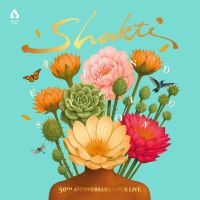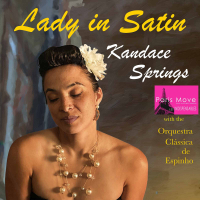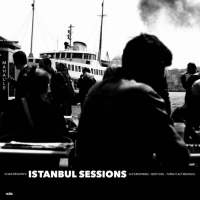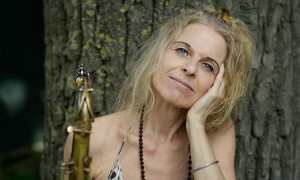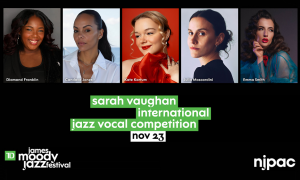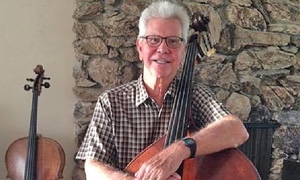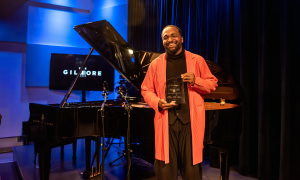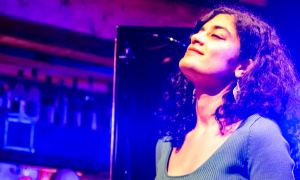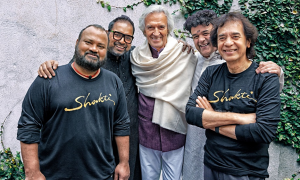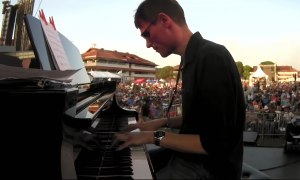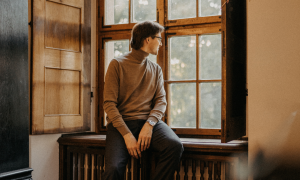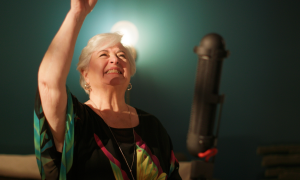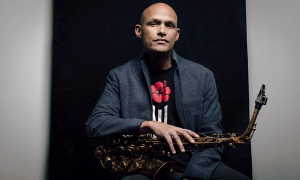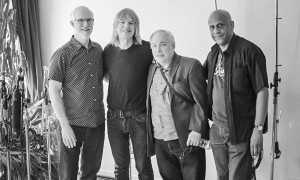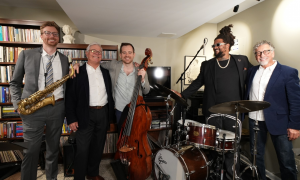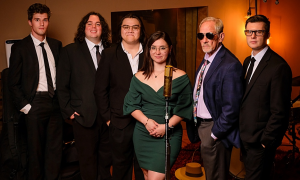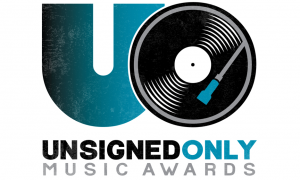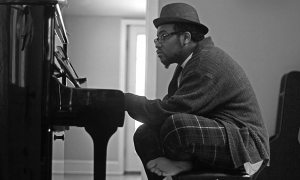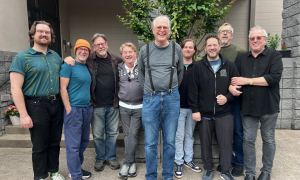Alice and John knew each other as musicians since 1962. What started out as a friendship soon became more. They had four children, and Alice became the pianist in John's quartet, recording with the group on seven albums. Her playing was free, expressive and extraordinary.
By the time she performed at Carnegie Hall in 1971—a fundraiser for the Integral Yoga Institute—she had just released her fourth solo album, Journey in Satchidananda, and had deepened her spiritual quest during a five-week trip to India.
Now, Impulse has released Alice Coltrane: The Carnegie Hall Concert. Recorded on February 21, 1971, her group featured Alice (p,harp,perc), Pharoah Sanders (ts,ss), Archie Shepp (ts,ss,perc), Jimmy Garrison and Cecil McBee (b), Ed Blackwell and Clifford Jarvis (d), Tulsi (tamboura) and Kumar Kramer (harmonium).
The four lengthy tracks on the album are a mix of spiritual jazz, the avant-garde and free jazz. Two were by Alice Coltrane (Journey in Satchidananda and Shiva-Loka) and two were by John Coltrane (Africa and Leo). The music ranges from tender and mystical (the first two) and abstract and story (the latter two). All are extraordinary for their expressions, emotionalism, artistry and break from traditional Western music.
The fund-raiser was for an institute founded by Swami Satchidananda, an Indian yoga guru and religious teacher who gained a following in the West after arriving in the U.S. in 1966. He had given the opening benediction at Woodstock: “Music is a celestial sound and it is the sound that controls the whole universe, not atomic vibrations. Sound energy, sound power, is much, much greater than any other power in this world,”
As Lauren Du Graf's excellent liner notes detail...
The concert accomplished its immediate purpose, raising $8,000 [equivalent to $61,000 in 2023] for Satchidananda’s rapidly expanding Institute, which between 1970 and 1972 grew from one New York City apartment to 25 centers across North America and Europe.
None of this may make much sense today unless one understands the social history of the late 1960s and early 1970s. As the counterculture grew in importance in the U.S. along with the media and the use of psychedelic drugs, the country was being exposed to events on TV and in magazines that were becoming increasingly difficult to process. On the music side, rock, pop and soul had generated unimaginable fame and income for groups like the Beatles and many other artists.
Such success led to boredom, a lack of self, and questions about purpose, especially as artists found themselves aging, no longer able to achieve the same level of relevance or fame, and endured personal turmoil. In the case of those also on the bill to raise money for Satchidananda that night at Carnegie Hall were Laura Nyro and the Rascals (both were flush with cash but would never again reach their earlier levels of fame) and Alice Coltrane, who must have felt unmoored after the death of her husband and under enormous pressure to raise four children and perform. All were followers of the Swami along with many other famous artists at the time.
They all came under the sway of the charismatic Satchidananda, and all donated to the Integral Yoga Institute. Again, you had to live through this period of social upheaval, decay and enormous highs and lows driven by unimaginable success and shifting values. Like today, little made sense back then, especially if you had crossed over into middle age and wondered who you were and what you had been doing and why. Think about Don Draper in the early 1970s at end of the TV series Mad Men.
None of this takes anything away from the hypnotic music performed at Carnegie Hall and captured on this album. Few jazz recordings have captivated me the way this one has, with its extraordinary emotion, Black power, pan-Africanism and artistic endurance by all of the performers in Alice Coltrane's group. And to be honest, I found I had a much deeper connection to the angst, sorrow, elation, energy and madness in the music than most of John Coltrane's latter recordings, which mostly leave me dry and bored.
This album isn't for everyone, but for me, Alice Coltrane: The Carnegie Hall Concert is a landmark performance that was both commanding and reflective of a fast-moving era that upended norms, leaving many confused and in search of purpose and connectivity.
Alice Coltrane died in 2007 of respiratory failure at age 69.
JazzWax clip: Here's Journey In Satchidananda via a visualizer...
This story appears courtesy of JazzWax by Marc Myers.
Copyright © 2025. All rights reserved.












